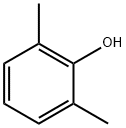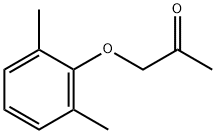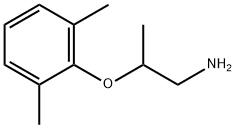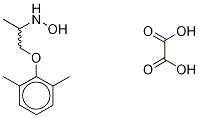A3138612
2,6-Dimethylphenol , Analysis standard , 576-26-1
Synonym(s):
2,6-Dimethylphenol;2,6-DMP;2-Hydroxy-m-xylene;vic.-m-Xylenol
CAS NO.:576-26-1
Empirical Formula: C8H10O
Molecular Weight: 122.16
MDL number: MFCD00002240
EINECS: 209-400-1
Update time: 2022-07-08
PRODUCT Properties
| Melting point: | 43-45 °C(lit.) |
| Boiling point: | 203 °C(lit.) |
| Density | 1.15 |
| vapor pressure | 0.2 hPa (20 °C) |
| refractive index | 1.5371 |
| FEMA | 3249 | 2,6-XYLENOL |
| Flash point: | 173 °F |
| storage temp. | Store below +30°C. |
| solubility | 8g/l |
| pka | pK1:10.59 (25°C) |
| form | Low Melting Solid |
| color | Colorless to yellow-brownish |
| PH | 6-7 (8g/l, H2O, 20℃) |
| Odor | at 0.10 % in propylene glycol. sweet medicinal phenolic rooty coffee |
| Odor Type | medicinal |
| biological source | synthetic |
| explosive limit | 1.4%(V) |
| Water Solubility | 10 g/L (20 ºC) |
| Merck | 14,10082 |
| JECFA Number | 707 |
| BRN | 1446677 |
| Exposure limits | ACGIH: TWA 1 ppm |
| Stability: | Stable. Very flammable. Incompatible with oxidizing agents, acid chlorides, acid anhydrides, steel, copper, copper alloys, bases, acid chlorides. |
| InChIKey | NXXYKOUNUYWIHA-UHFFFAOYSA-N |
| LogP | 2.3 at 20℃ |
| CAS DataBase Reference | 576-26-1(CAS DataBase Reference) |
| NIST Chemistry Reference | Phenol, 2,6-dimethyl-(576-26-1) |
| EPA Substance Registry System | 2,6-Dimethylphenol (576-26-1) |
Description and Uses
Similar to other xylenol compounds, 2,6-dimethylphenol is used in the synthesis of anti-oxidant compounds due to the phenol moiety in the structure. In addition, this compound is used as a a reactant in the synthesis of polyphenylene ether polymers.
Safety
| Symbol(GHS) |    GHS05,GHS06,GHS09 |
| Signal word | Danger |
| Hazard statements | H301+H311-H314-H335-H411 |
| Precautionary statements | P260-P273-P280-P303+P361+P353-P304+P340+P310-P305+P351+P338 |
| Hazard Codes | T,N |
| Risk Statements | 24/25-34-51/53 |
| Safety Statements | 26-36/37/39-45-61 |
| RIDADR | UN 2261 6.1/PG 2 |
| WGK Germany | 2 |
| RTECS | ZE6125000 |
| Autoignition Temperature | 555 °C |
| TSCA | Yes |
| HazardClass | 6.1 |
| PackingGroup | II |
| HS Code | 29071400 |
| Hazardous Substances Data | 576-26-1(Hazardous Substances Data) |
| Toxicity | LD50 orally in Rabbit: 296 mg/kg LD50 dermal Rabbit 1000 mg/kg |






